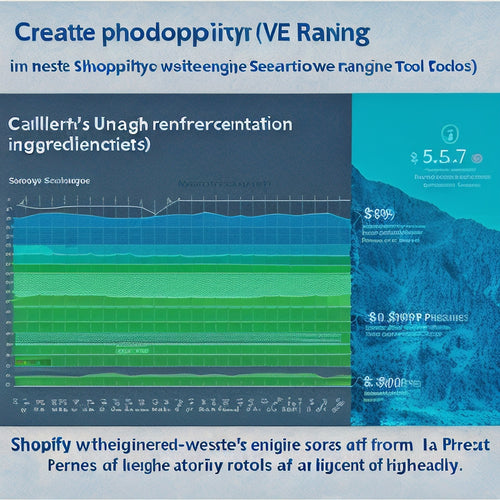Tips for Creating Effective Shoppable Videos
Share
Shoppable videos have become a powerful tool for brands to engage and convert their target audience.
In this article, we will explore tips for creating effective shoppable videos that drive sales and enhance the shopping experience.
By understanding your target audience, planning your video strategy, creating engaging content, optimizing for SEO, and tracking results, you can create shoppable videos that not only capture attention but also inspire action.
Join us as we delve into the world of shoppable videos and unlock their potential for your business.
- Data analysis is crucial for optimizing shoppable videos by identifying areas for improvement and making informed decisions about content, product, and call-to-action placements.
- Metrics like click-through rates, time spent watching, and conversion rates provide valuable insights into viewer engagement and the effectiveness of shoppable videos.
- Proper placement of content and products in shoppable videos enhances viewer engagement and conversion rates.
- Personalization based on viewer preferences and interests, along with strategies like A/B testing, can optimize shoppable video conversion rates.
Understand Your Target Audience
Understanding the target audience is crucial when creating shoppable videos. To effectively engage viewers and drive conversions, it is essential to identify their preferences and analyze their demographics. By doing so, marketers can tailor their content to align with the interests and needs of the target audience.
Analyzing demographics involves gathering information about characteristics such as age, gender, location, income level, and education. This data provides valuable insights into consumer behavior patterns and purchasing habits. For example, a younger demographic may be more inclined towards trendy fashion items or tech gadgets, while an older demographic might prefer products that enhance health and well-being.
Identifying preferences goes beyond demographics and delves into individual tastes and interests. This could include understanding what types of products or services they are interested in, what social media platforms they use most frequently, or what influencers they follow.
By combining these two aspects – analyzing demographics and identifying preferences – marketers gain a comprehensive understanding of their target audience's desires and motivations. Armed with this knowledge, they can create shoppable videos that resonate with viewers on a personal level, increasing the likelihood of conversion.
Plan Your Video Strategy
To optimize the effectiveness of your video strategy, careful planning is essential. Understanding your target market and their preferences is crucial for creating shoppable videos that resonate with your audience. Once you have a clear understanding of who you are targeting, it's time to plan your video production techniques.
Here are some key tips to consider when planning your video strategy:
-
Determine the purpose: Identify the goal of your shoppable video, whether it's to increase brand awareness, drive sales, or educate customers about a product.
-
Choose the right platform: Research which platforms align with your target audience and where they are most likely to engage with shoppable videos. This could be social media platforms like Instagram or YouTube.
-
Consider the format: Decide on the type of shoppable video that will best convey your message, such as product demonstrations, tutorials, or testimonials.
- Plan the content: Outline a script or storyboard that clearly communicates your message while incorporating elements that appeal to your target market.
By thoroughly understanding your market and strategically planning your video production techniques, you can create effective shoppable videos that not only engage but also convert viewers into customers.
Create Engaging and Interactive Content
One important aspect of video strategy is the creation of engaging and interactive content. This type of content helps to increase conversions and boost brand awareness. By creating videos that captivate and interact with viewers, businesses can effectively engage their target audience and encourage them to take action.
Engaging content can be achieved through various techniques such as storytelling, humor, or emotional appeal. By telling a compelling story or eliciting an emotional response from viewers, businesses can create a connection with their audience, making them more likely to remember the brand and its message. Incorporating humor into videos can also make them more enjoyable to watch and share, further increasing brand exposure.
Interactive content allows viewers to actively participate in the video experience. This could include interactive elements such as clickable annotations or embedded links that direct users to product pages or additional information. By giving viewers the ability to explore further or make a purchase directly from the video, businesses can significantly increase conversions.
Overall, creating engaging and interactive content is crucial for a successful shoppable video strategy. It not only helps increase conversions but also boosts brand awareness by captivating and involving viewers in a meaningful way.
Optimize Your Videos for SEO
Optimizing videos for search engine optimization (SEO) involves implementing specific techniques to improve the visibility and ranking of the content on search engine result pages. When it comes to shoppable videos, optimizing them for SEO can greatly enhance their reach and effectiveness in promoting products or services.
Here are some key tips for optimizing your shoppable videos:
-
Use relevant keywords: Conduct keyword research to identify the most commonly searched terms related to your video content. Incorporate these keywords in your video title, description, and tags to increase its visibility on search engines.
-
Write compelling descriptions: Craft engaging and informative video descriptions that accurately describe the content and include relevant keywords. This will not only make it easier for search engines to understand your video but also entice viewers to click on it.
-
Add closed captions: Including closed captions in your shoppable videos not only makes them more accessible but also improves their SEO. Search engines can crawl through caption text, which helps them understand the context and relevance of your video.
-
Optimize thumbnails: Choose visually appealing thumbnails that accurately represent the content of your shoppable video. A captivating thumbnail can attract more clicks and improve its ranking on search engine result pages.
-
Promote your videos: Share your shoppable videos across various platforms such as social media, blogs, or websites to increase their visibility and reach a wider audience. This will drive more traffic to your videos, resulting in better SEO performance.
By following these optimization techniques, you can enhance the promotion and monetization of your shoppable videos by increasing their visibility on search engine result pages.
Track and Analyze Your Results
Tracking and analyzing your results is crucial for optimizing your video marketing strategy.
By monitoring viewership and engagement metrics such as views, likes, comments, and shares, you can gain valuable insights into the effectiveness of your videos.
These data-driven insights enable you to make informed decisions and adjust your strategy accordingly to improve audience reach, engagement, and ultimately drive more conversions.
Monitor Viewership and Engagement Metrics
To effectively monitor viewership and engagement metrics in shoppable videos, it is crucial to employ analytical tools that provide accurate and comprehensive data on user behavior and interactions. These tools allow businesses to measure the performance of their shoppable videos and make informed decisions to improve conversions.
Here are four reasons why monitoring viewership and engagement metrics is essential:
-
Identify popular video segments: Analyzing viewership data helps identify which parts of the video are most engaging to users, allowing businesses to optimize those segments for better conversion rates.
-
Understand audience behavior: By tracking viewer interactions such as clicks, pauses, or rewinds, businesses can gain insights into how their target audience engages with the video content.
-
Measure conversion rates: Monitoring engagement metrics enables businesses to measure how many viewers convert into customers after watching a shoppable video.
-
Optimize marketing strategies: Analyzing viewership patterns can help businesses understand the effectiveness of different marketing strategies and tailor future campaigns accordingly.
By closely monitoring viewership and engagement metrics, companies can continually improve their shoppable videos' performance and drive higher conversions.
Adjust Your Strategy Based on Data Insights
Adapting marketing strategies based on data insights can lead to improved performance and increased conversions in shoppable videos. By using a data-driven approach, marketers can gather valuable information about viewer behavior, preferences, and engagement levels. This data provides insights into which elements of the video are most effective in driving conversions.
For example, by analyzing metrics such as click-through rates, time spent watching the video, and conversion rates, marketers can identify areas for improvement and optimize their videos accordingly. These insights enable them to make informed decisions about content placement, product placement, and call-to-action placements within the video.
Moreover, leveraging data allows marketers to personalize their shoppable videos based on individual preferences and interests of viewers.
In conclusion, adjusting marketing strategies based on data insights is crucial for optimizing shoppable videos to improve conversion rates and overall performance.
Frequently Asked Questions
How can I determine who my target audience is for shoppable videos?
Determining the target audience for shoppable videos involves audience segmentation. This process entails categorizing potential viewers based on various demographic, psychographic, and behavioral factors. By understanding the preferences and needs of specific audience segments, marketers can effectively tailor their shoppable videos to resonate with their desired viewership.
What are some effective video strategies for promoting products in shoppable videos?
Effective video strategies for promoting products in shoppable videos include skillful video editing techniques to enhance visual appeal and create a seamless viewing experience. Strategic product placement ensures products are prominently displayed, increasing the likelihood of viewer engagement and conversion.
Are there any specific techniques or features that can make shoppable videos more engaging and interactive?
Interactive features and engagement techniques are crucial for enhancing the effectiveness of shoppable videos. By incorporating elements such as clickable hotspots, interactive quizzes, and personalized recommendations, viewers are more likely to engage with the content and feel a sense of belonging.
How can I optimize the SEO of my shoppable videos to increase visibility and reach?
Optimizing SEO for shoppable videos can enhance their visibility and reach. By utilizing relevant keywords, optimizing video titles, descriptions, and tags, and ensuring fast loading times, shoppable videos can increase organic traffic and improve search engine rankings.
What are some key metrics and analytics that I should track and analyze to measure the success of my shoppable videos?
To measure the success of shoppable videos, key metrics and analytics should be tracked and analyzed. These include conversion rate, click-through rate, engagement rate, revenue generated, and customer behavior data. Tracking these metrics helps in optimizing strategies for better performance and enhancing the overall success of shoppable videos.
Related Posts
-

What Social Media Is Best for Shopify
This article aims to provide an objective analysis of the various social media platforms and their suitability for S...
-

Does Shopify Offer SEO Optimization
This article examines the question of whether Shopify offers SEO optimization. It aims to provide an objective and i...
-

Customer Shopify Apps Focus on Enhancing the Customer Experience and Fostering Loyalty
This article explores the role of customer Shopify apps in enhancing the customer experience and fostering loyalty. ...


